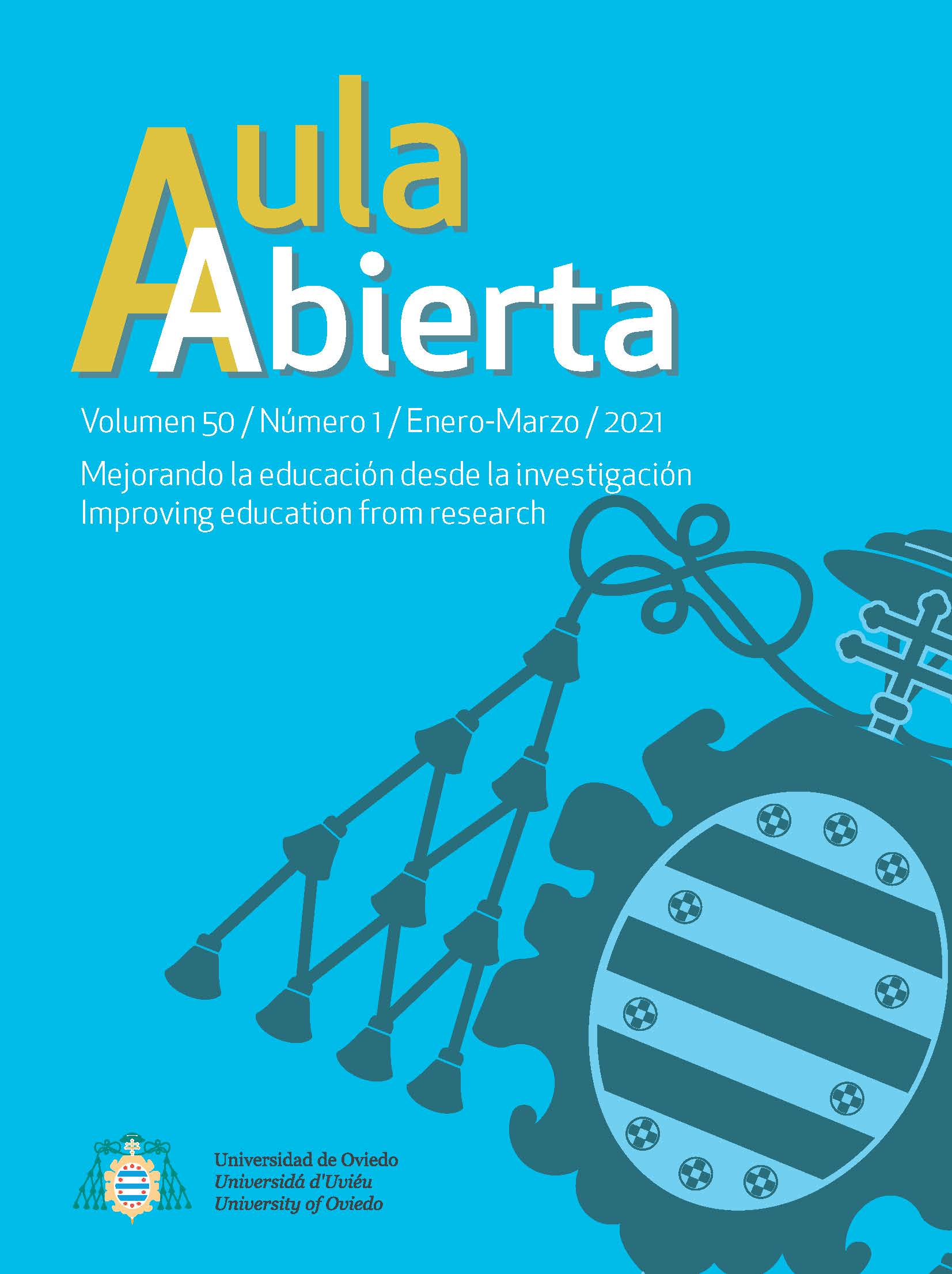Resumen
This paper examines, for the first time in Galicia (Spain), the culture, policy and practice of teachers and families in six primary schools, with the aim of understanding their reality from an inclusive perspective and, subsequently, being able to establish some course of action for improvement. Within the framework of participatory, descriptive, exploratory and explanatory research, an adaptation of the Index for Inclusion (Booth & Ainscow, 2011) was applied to a sample of 158 families and 85 teachers. Although both groups advocated for an inclusive education, there were some discrepancies between the intentions and the daily reality of schools. Differences between culture and practice were probably the element that most brought those contradictions to light. Some steps towards inclusion have been taken so far, generating a debate on how to improve it in schools. That debate has been led separately by education administrators, teachers or families of students with special educational needs, but a joint analysis of the voices of all families and teachers, key agents to promote a school for all, has been left aside. It is about time new trails were blazed to stimulate reflection and allow for further progress on the path to total inclusion.
Citas
Ainscow, M. (2002). Rutas para el desarrollo de prácticas inclusivas en los sistemas educativos. Revista de Educación, 327, 69-82. Retrieved from https://sede.educacion.gob.es/publiventa/detalle.action?cod=10520
Ainscow, M. & Messiou, K. (2018). Engaging with the views of students to promote inclusion in education. Journal of Educational Change, 19, 1-17. https://doi.org/10.1007/s10833-017-9312-1
Arnaiz, P. & Azorín, C. (2014). Autoevaluación docente para la mejora de los procesos educativos en escuelas que caminan hacia la inclusión. Revista Colombiana de Educación, 67, 227-245. Retrieved from http://www.scielo.org.co/pdf/rcde/n67/n67a11.pdf
Azorín, C. & Ainscow, M. (2020). Guiding schools on their journey towards inclusion. International Journal of Inclusive Education, 24(1), 58-76. https://doi.org/10.1080/13603116.2018.1450900
Blanco, R. (2008). Construyendo las bases de la inclusión y la calidad de la educación en la primera infancia. Revista de Educación, 347, 33-54. Retrieved from http://www.revistaeducacion.educacion.es/re347/re347_02.pdf
Booth, T. & Ainscow, M. (2000). Index for Inclusion: developing learning and participation in schools. Bristol: Centre for Studies on Inclusive Education (CSIE).
Braunsteiner, M. L. & Mariano-Lapidus, S. (2014). A perspective of inclusion: Challenges for the future. Global Education Review, 1(1). 32-43. Retrieved from https://files.eric.ed.gov/fulltext/EJ1055217.pdf
Booth, T. & Ainscow, M. (2011). Index for inclusion: developing learning and participation in schools (3rd ed). Bristol, United Kingdom: Centre for Studies on Inclusive Education.
Cárdenas, M. & Arancibia, H. (2014). Potencia estadística y cálculo del tamaño del efecto en G*Power. Salud & Sociedad, 5(2), 210-224. Retrieved from https://dialnet.unirioja.es/metricas/documento/ARTREV/4945415
Cardona-Molto, M. C., Ticha, R. & Abery, B. H. (2020). The Spanish version of the teacher efficacy for inclusive practice (TEIP) scale: Adaptation and psychometric properties. European Journal of Educational Research, 9(2), 809-823. https://doi.org/10.12973/eu-jer.9.2.809
Cenci, A., Ferreira, M., Fuhro, D., Damiani, M. F. & Engeströme, Y. (2020). The contradictions within inclusion in Brazil. Learning, Culture and Social Interaction, 24, 1-14. https://doi.org/10.1016/j.lcsi.2019.100375
Collet-Sabé, J. (2020). Les relacions entre l’escola i les famílies des d’una perspectiva democràtica: eixos d’anàlisi i propostes per a l’equitat. Educar, 56(1), 241-258. https://doi.org/10.5565/rev/educar.1012
Crisol, E. (2019). Hacia una educación inclusiva para todos. Nuevas contribuciones. Profesorado, 23(1), 1-9. https://recyt.fecyt.es/index.php/profesorado/article/view/72108
Hedegaard-Soerensen, L. & Grumloese, S. P. (2020). Exclusion: the downside of neoliberal education policy. International Journal of Inclusive Education, 24(6), 631-644. https://doi.org/10.1080/13603116.2018.1478002
Hernández, R., Fernández, F., Baptista, P., Méndez, S. & Mendoza, C.P. (2015). Metodología de la investigación (6th ed). México D.F.: McGraw Hill.
Malone, H.J. (2020). Community schools: bridging educational change through partnership. Journal of Educational Change, 21, 87-497. https://doi.org/10.1007/s10833-020-09375-2
Materechera, E. K. (2020). Inclusive education: why it poses a dilemma to some teachers. International Journal of Inclusive Education, 24(7), 771-786. https://doi.org/10.1080/13603116.2018.1492640
Mateus, L. E., Vallejo, D. M., Obando, D. & Fonseca, L. (2017). Percepción de las prácticas y de la cultura inclusiva en una comunidad escolar. Avances en Psicología Latinoamericana, 35(1), 177-191. http://dx.doi.org/10.12804/revistas.urosario.edu.co/apl/a.4854
Messiou, K. & Ainscow, M. (2020). Inclusive Inquiry: Student–teacher dialogue as a means of promoting inclusion in schools. British Educational Research Journal, 46(3), 670-687. https://doi.org/10.1002/berj.3602
Ministerio de Educación y Formación Profesional (2019). Sistema estatal de indicadores de la educación 2019. Retrieved from http://www.educacionyfp.gob.es/dam/jcr:627dc544-8413-4df1-ae46-558237bf6829/seie-2019.pdf
Nes, K. (2009). The Role of the Index for Inclusion in Supporting School Development in Norway: a comparative perspective. Research in Comparative and International Education, 4(3), 305-320. http://dx.doi.org/10.2304/rcie.2009.4.3.305
Paseka, A. & Schwab, S. (2020). Parents’ attitudes towards inclusive education and their perceptions of inclusive teaching practices and resources. European Journal of Special Needs Education, 35(2), 254-272. https://doi.org/10.1080/08856257.2019.1665232
Ramírez, A. & Muñoz, M. C. (2012). Prácticas inclusivas de los docentes en la convivencia escolar y en la organización y funcionamiento de los centros de educación primaria de la zona norte de Córdoba. Revista de Investigación Educativa, 30(1), 197-222.
Ruan, X. & Zheng, X. (2019). The rhetoric and the reality: Exploring the dynamics of profesional agency in the identity commitment of a Chinese female teacher. Learning, Culture and Social Interaction, 21, 348-361. https://doi.org/10.1016/j.lcsi.2019.04.008
Real Decreto Legislativo 1/2013, de 29 de noviembre, por el que se aprueba el texto refundido de la Ley General de Derechos de las personas con discapacidad y de su inclusión social. BOE núm. 289, de 3 de diciembre, 1-44.
Senge, P. M. (1989). The Fifth Discipline: The art and practice of the learning organization. London: Century.
Simón, C. & Barrios, A. (2019). Las familias en el corazón de la educación inclusiva. Aula Abierta, 48(1), 51-58. https://doi.org/10.17811/rifie.48.1.2019.51-58
Soldevilla, J., Naranjo, M. & Muntaner, J.J, (2017). Inclusive practices: the role of the support teacher. Aula Abierta, 46(2), 49-56. https://doi.org/10.17811/rifie.46.2017.49-56
Verger, S., Chover, L. & Rosselló, M.R. (2020). La contribución del/de la auxiliar técnico educativo (ATE) para el desarrollo de una plena inclusión. Aula Abierta, 49(2), 171-176. https://doi.org/10.17811/rifie.49.2.2020.171-176
Yotyodying, S. & Wild, E. (2019). Effective family–school communication for students with learning disabilities: Associations with parental involvement at home and in school. Learning, Culture and Social Interaction, 22, 300-317. https://doi.org/10.1016/j.lcsi.2019.100317

Esta obra está bajo una licencia internacional Creative Commons Atribución-NoComercial-SinDerivadas 4.0.
Derechos de autor 2021 Aula Abierta






